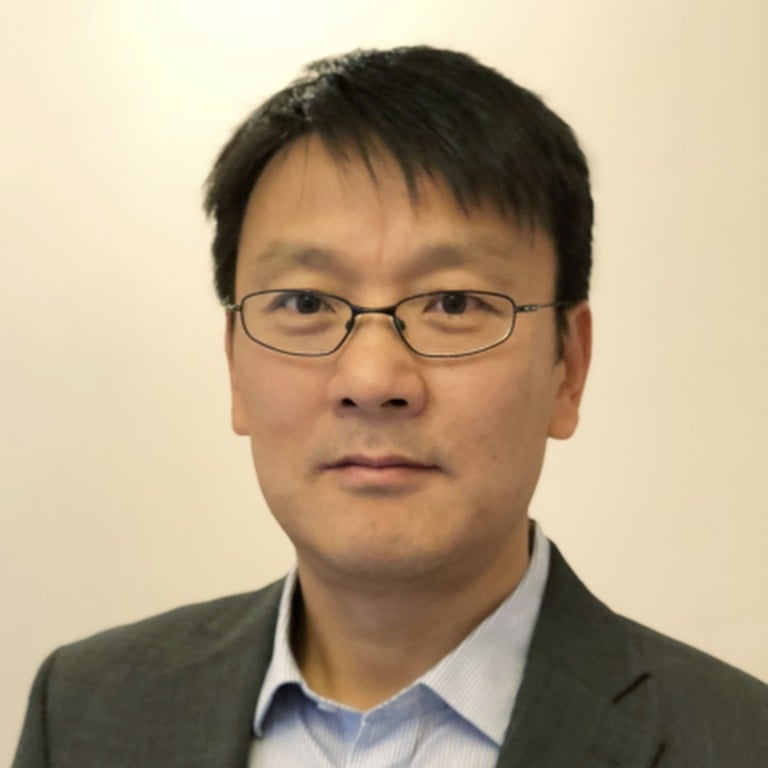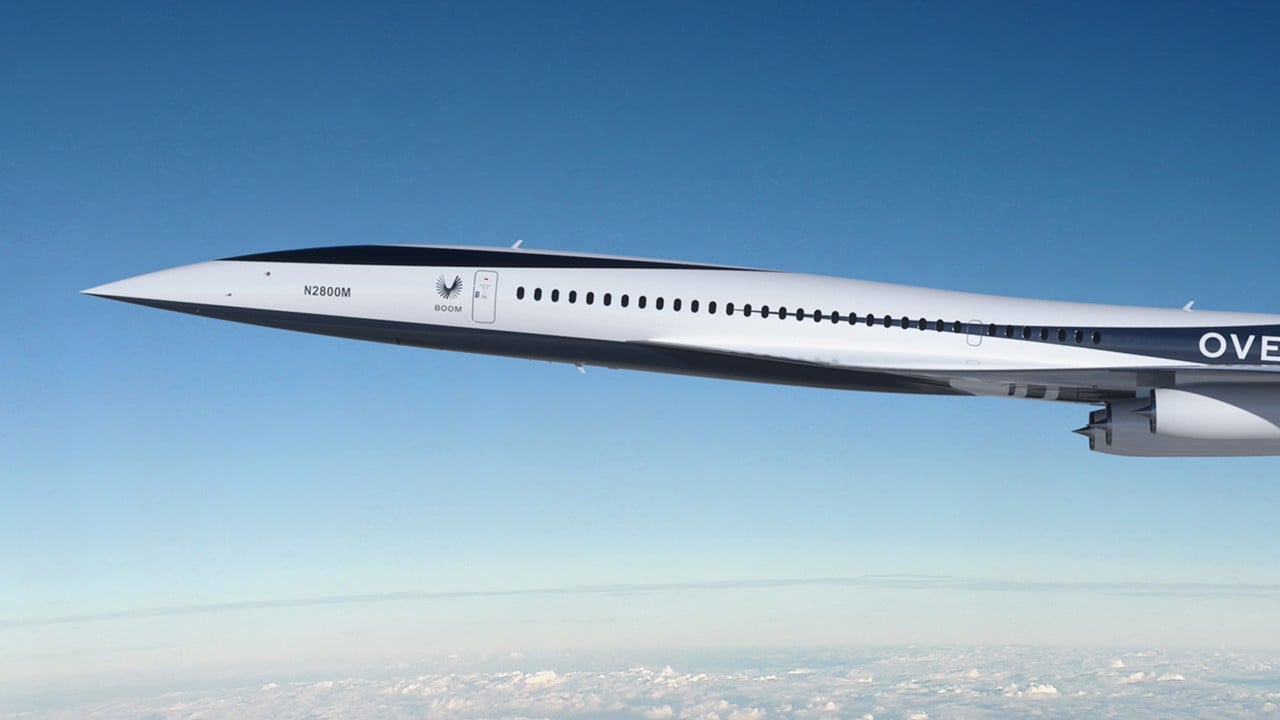
After 20 years in UK, British chair professor joins China’s hypersonic programme
- Physicist Zhang Yonghao resigned from the University of Edinburgh to join China’s new national hypersonic laboratory in Beijing
- Zhang’s experience in organising large-scale projects and managing teams could be valuable, according to his new employer, the Institute of Mechanics
After more than 20 years in Britain as a prominent physicist dedicated to unveiling the secrets of superfast fluids, Zhang Yonghao has joined China’s new national hypersonic laboratory in Beijing.
According to the institute’s website, Zhang’s team will develop advanced computational methods and models for simulating gases’ behaviour at high speeds and temperatures crucial in making hypersonic vehicles more efficient and effective.
Their investigation into high-temperature aerodynamic and thermal effects on materials is crucial because hypersonic vehicles must withstand extreme temperatures and pressures during flight.
The institute said Zhang’s team was expected to “lead the world” in developing materials that surpass all existing standards in their ability to withstand different factors and pressure management.
Zhang’s contract was effective immediately after he resigned from the University of Edinburgh in October 2022, according to the institute.
In 2022, the investigations led to a record number of scientists and postgraduate students being barred from working in Britain for national security reasons.
The Guardian reported in March that the Foreign Office’s vetting programme rejected more than 1,000 people in 2022, up from just 13 individuals in 2016.
While these measures are designed to safeguard research and development, they threaten to dampen scientific collaboration and innovation, particularly in areas where China is a leading player, warned some academics and experts in Britain.
Award-winning Chinese mathematician returns to Peking University from US
However, it is not clear why Zhang Yonghao – who had held the post of chair professor in multiscale fluid mechanics at the University of Edinburgh – decided to return to China to work in the Beijing-based national hypersonic laboratory. The South China Morning Post has contacted to Zhang’s office for comment.
Zhang has been working on developing new methods and models in the field of gas dynamics, specifically in the areas of rarefied gas dynamics and multiscale fluid mechanics.
The “new discrete velocity method” and “dense non-equilibrium gas dynamics model” are two examples of his contributions to the field.
The new discrete velocity method is a numerical technique that can simulate the flow of gases at different scales, from the macroscopic to the microscopic level.
This method is particularly useful for simulating rarefied gas flows, which occur at very low pressures and are difficult to model using traditional methods.
The dense non-equilibrium gas dynamics model is a theoretical framework that can describe the behaviour of gases under extreme conditions, such as high temperature and high pressure.
This model takes into account the non-equilibrium nature of dense gases, which means that they do not behave like ideal gases and require more complex models to accurately describe their behaviour.
These models help researchers better understand how gases behave at high speeds and in extreme conditions, which is important for the development of hypersonic aircraft.
Zhang graduated from an obscure college in southern China that trained students to repair agriculture machinery in the 1990s before working as a computational scientist at Daresbury Laboratory in Britain in the early 2000s.
He established himself as a leading expert in multiscale fluid mechanics. His research has focused on understanding multiscale and multiphysical flow physics through theoretical and computational studies, which is an area of growing importance in fields such as aerospace engineering, energy production and environmental science.
China’s incentive scheme lures young scientists – superstars not so much
Zhang chaired the executive board of the International Symposium on Rarefied Gas Dynamics in 2018 as a chair professor at Strathclyde University.
By 2020, he was appointed chair professor at the University of Edinburgh.
In Britain, a chair professorship is typically the highest academic rank that can be achieved. It is a prestigious title awarded to individuals who have made significant contributions to their field of research and who are recognised as leaders in their discipline.
It remains unclear why Zhang terminated his professorship in Edinburgh in less than two years, but some Chinese scientists believe the growing anti-China sentiment in Britain might not be the only reason for his return to China.
“It is not uncommon for established scholars to move between institutions or countries to pursue new research opportunities or advance their careers,” said a Beijing-based physicist who also studied high-speed fluids but asked not to be named because of the sensitivity of the issue.
Britain does not have hypersonic weapons in its arsenal, but hypersonic flight research is a complex and multidisciplinary field that involves expertise in areas such as aerodynamics, materials science and propulsion systems.
It is possible Britain has strengths in some of these areas that are not reflected in its current military capabilities, according to the physicist.
Zhang can benefit from working with Chinese researchers at the forefront of hypersonic flight research, which would provide him with access to cutting-edge facilities and resources, as well as opportunities to collaborate on high-impact research projects.
But Zhang’s background and experience in Britain could raise some concerns about his potential access to sensitive information related to China’s hypersonic weapon development.
“Given the highly secretive nature of this programme, it is likely that access to sensitive information would be tightly controlled and restricted only to those on a need-to-know basis,” said the Beijing-based physicist.
Can China thwart US hypersonic missile defence systems with an old algorithm?
“Even if Zhang does not have direct access to sensitive information related to China’s hypersonic weapon development, he may still be able to contribute valuable expertise and insights based on his experience in multiscale fluid mechanics,” he added.
Zhang’s experience in organising large-scale projects and managing teams could be valuable for coordinating the efforts of researchers from different disciplines and institutions, because developing hypersonic flight technology will require collaboration between experts in many areas, according to his new employer, the Institute of Mechanics.
His international reputation as a leading expert in gas dynamics could also help attract top talent from around the world to work at the new laboratory, the institute said.



